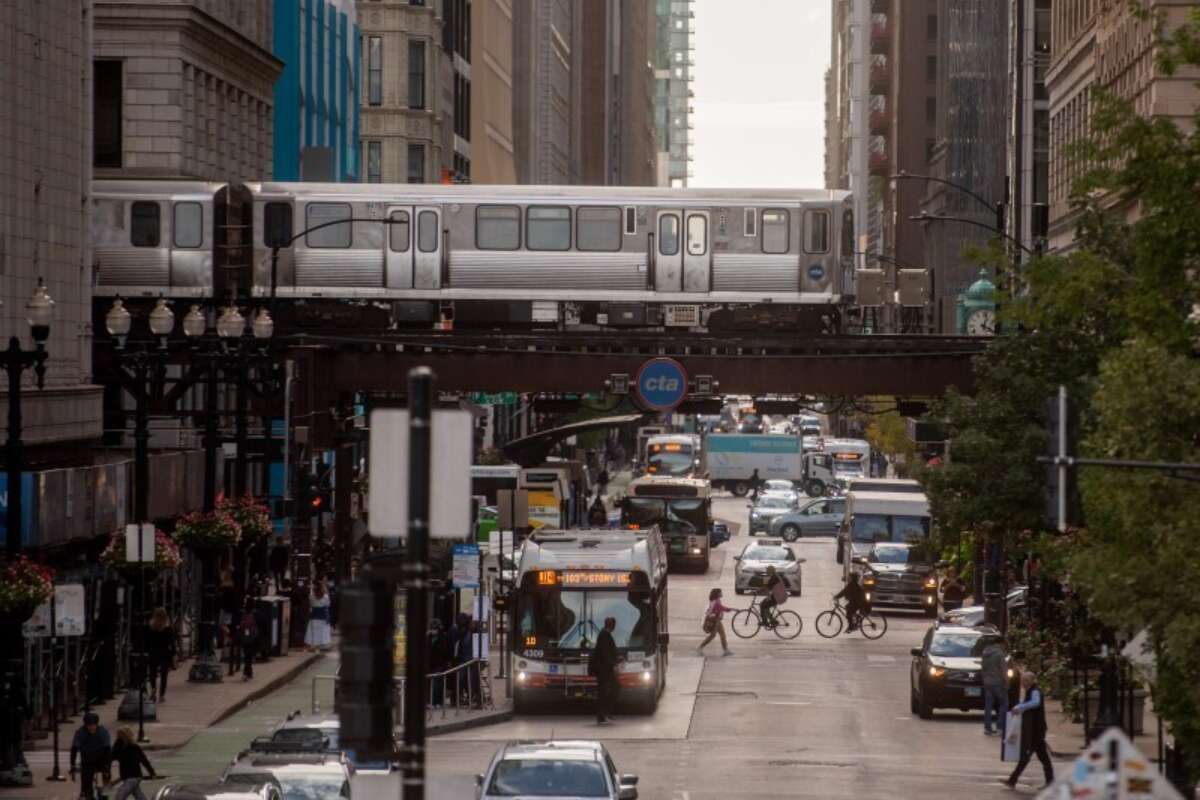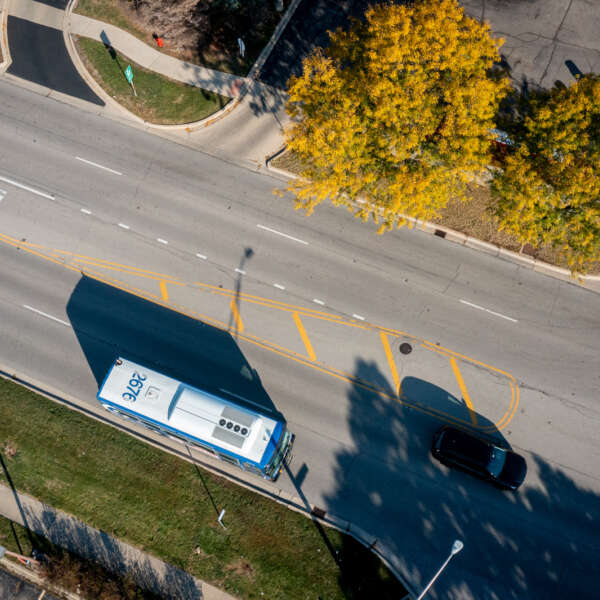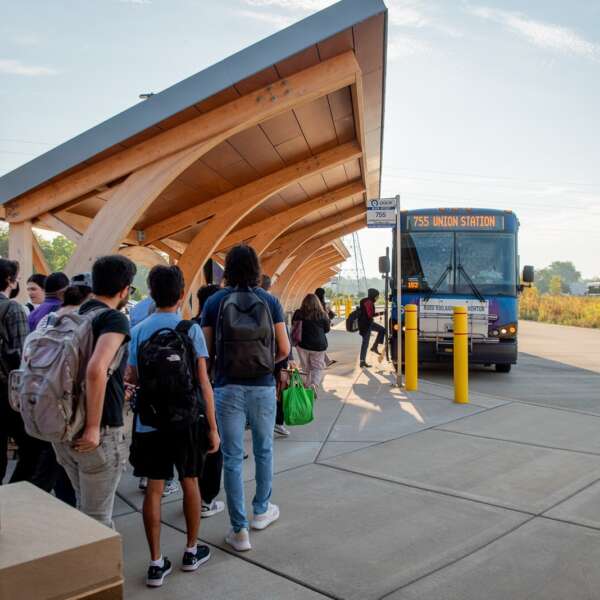Legislative Update: Lawmakers take important steps to make transit system less reliant on fares
June 1, 2023
June 1, 2023

The Illinois General Assembly adjourned this year’s spring legislative session after passing a $50.6 billion budget for FY2024 and several initiatives aimed at addressing some of transit’s most pressing challenges. This legislation requires the governor’s signature before becoming law.
The General Assembly took a critical step in extending relief for the transit system from the 50 percent farebox recovery ratio requirement that was in place prior to the start of the pandemic in 2020. The current waiver from the requirement was set to expire at the end of this year but will now stay in place through 2025.
Before farebox recovery ratio relief first passed in 2020, Chicago’s regional transit operators – CTA, Metra, and Pace – were required by state law to raise at least 50 percent of their revenue from fares. This requirement, which is by far the highest in the nation, forces agencies to focus primarily on increasing fare revenue, limiting their ability to experiment with new and different types of service that may not result in immediate ridership gains. It also prevents agencies from increasing attention on delivering equitable service to the people who need it the most.
While relief from the requirement is critical, this step alone does not address the Chicago region’s current operating funding crisis. Ultimately our region needs new funding for transit operations to close our projected $730 million funding gap starting in 2026, and prevent major fare hikes and service cuts. We continue to speak with local, state, and federal officials about how we can work together to increase operations funding and ensure agencies can deliver high-quality, affordable service.
The extended relief from the farebox recovery ratio was part of House Bill 1342, an “omnibus” transit package that includes new free and reduced fare programs, giving agencies the ability to suspend repeat offenders, and a zero-emission vehicle mandate, among other items. Here’s some of what lawmakers included in the package:
Lawmakers passed Senate Bill 1892, making changes to the RTA’s free and reduced fare programs for seniors and people living with a disability to make it easier for enrollees to renew their benefits.
Legislators also passed House Bill 2068, requiring that all qualifying employers within one mile of transit service in the RTA region will begin to offer the federal pre-tax transportation benefit program, which allows their employees to purchase transit passes tax-free.
All these measures passed both chambers of the General Assembly and are expected to be sent to the governor to sign into law in the coming months. Many of the policies passed this session support the goals outlined in Transit is the Answer, including creating a more equitable fare structure, making the system safer and more accessible, and accelerating the transition to a zero-emission system. The RTA will continue to work with legislators to address the impending fiscal cliff and to implement the plan’s full Action and Advocacy agendas.
Subscribe to our Newsletter
Related Articles
 Coalition members provide feedback on ‘Transforming Transit,’ RTA’s vision for improved service and accountability
Coalition members provide feedback on ‘Transforming Transit,’ RTA’s vision for improved service and accountability
Nearly 200 riders, advocates, and other stakeholders met virtually with the RTA on February 11 for the sixth quarterly Transit is the Answer Coalition meetin...
February 20, 2025 Far South Halsted Corridor Study prepares for future Pace Pulse service
Far South Halsted Corridor Study prepares for future Pace Pulse service
An RTA Community Planning project kicked off in late 2023 as a crucial step in bringing Pace Pulse service to Chicago’s south suburbs. The Far South Halsted ...
February 19, 2025 RTA proposes reforms to prioritize capital projects, maximizing impact of funding
RTA proposes reforms to prioritize capital projects, maximizing impact of funding
RTA is proposing a historic restructuring of the region’s transit governance to maximize the impact of new operating funding and ensure all riders experience...
February 5, 2025 RTA proposes reforms to integrate fares, require accountability for faster and more reliable transit
RTA proposes reforms to integrate fares, require accountability for faster and more reliable transit
RTA is proposing a historic restructuring of the region’s transit governance to maximize the impact of any new operating funding and ensure all riders experi...
February 5, 2025 For the third year in a row, regional transit ridership was up by double-digits in 2024
For the third year in a row, regional transit ridership was up by double-digits in 2024
Ridership across the Chicago region’s transit system continued to increase throughout 2024, according to the latest data from CTA, Metra, and Pace. The regio...
January 28, 2025 RTA is seeking $1.5 billion in annual operating funding. What would that mean for your commute?
RTA is seeking $1.5 billion in annual operating funding. What would that mean for your commute?
On January 15, RTA released Transforming Transit, a vision for the regional transit system with $1.5 billion in annual operating funding supported by a stron...
January 28, 2025